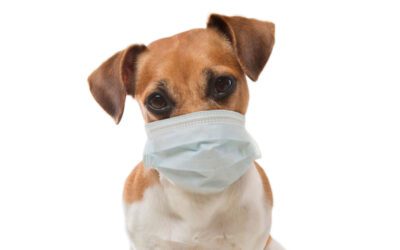What Garden City Veterinary Care Is Doing to Keep You and Your Pets Safe During the COVID-19 / 2019-nCOV Outbreak
UPDATE: Our new, temporary hours are: Monday - Friday: 8am-6pm. Saturday: 8am-3:30pm. We understand that many businesses, schools, and organizations have temporarily closed or asked their workers to telecommute for now and in the weeks ahead. However, as a veterinary...
Coronavirus Information
In light of all the news regarding the Coronavirus (COVID-19) outbreak, we wanted to share some information with you. Due to the recent COVID-19 outbreak we ask that if you are experiencing flu-like symptoms or a fever to stay home if possible. We are happy to...
Holiday Safety Tips For Your Pet From The ASPCA
The holiday season is upon us, and many pet parents plan to include their furry companions in the festivities. As you gear up for the holidays, it is important to try to keep your pet’s eating and exercise habits as close to their normal routine as possible. Also,...
Holiday Safety For Cats
The following is an interesting article from Cornell University’s College of Veterinary Medicine about cat safety during the holidays. Cats, being the inquisitive creatures that they are, appreciate things that are new and different. Because the holidays bring an...
Traveling With Your Pet
When traveling with your pet(s), there may be animal health requirements specific to that destination. As soon as you know your travel details, contact your veterinarian to assist with the pet travel process. Factors to consider may include meeting time frames for...
Cold Weather Pet Safety
The following is a message about keeping your pet safe in the cold weather from the American Veterinary Medical Association (AVMA).You’re probably already aware of the risks posed by warm weather and leaving pets in hot cars, but did you know that cold...
Pet Halloween Safety: Xylitol
IMPORTANT: Xylitol is toxic and can be deadly for pets including dogs and cats. The candy bowl is for trick-or-treaters, not Scruffy or Fluffy. Several popular Halloween treats are toxic to pets. Chocolate in all forms—especially dark or baking...
Flea and Tick Product Alert
The information below about flea and tick products is from the FDA: Animal Drug Safety Communication, FDA Alerts Pet Owners and Veterinarians About Potential for Neurologic Adverse Events Associated with Certain Flea and Tick ProductsThe U.S. Food and Drug...
Longhorn Tick and Lyme Disease
Longhorned Tick: The Lyme Disease Association reports that according to the National Veterinary Services Laboratory, the Haemaphysalis longicornis tick (otherwise known as the East Asian or Longhorned tick) was found in Virginia, appearing on an orphaned...
Canine Influenza: Dog Flu
Canine influenza (CI), or dog flu, is a highly contagious viral infection affecting dogs and also cats. Influenza viruses belong to the family Orthomyxoviridae. Canine influenza is a Type A influenza virus and is further identified based on the composition...





